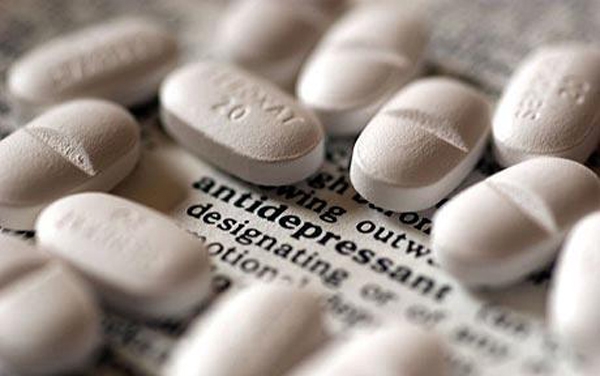Study authors claim those believing antidepressants are not dangerous is a “potentially lethal misconception”
By Kelly Patricia O’Meara
Published by CCHR International
The Mental Health Industry Watchdog
October 17, 2016
A recently released, precedent setting study reveals that antidepressants double the risk of harm related to suicide and violence in healthy adults. This means that according to the new analysis, one person is harmed for every 16 persons treated with the drugs.[1]
While it has long been known that antidepressants cause suicidality in adolescents and young adults, forcing the Food and Drug Administration (FDA) to place its most serious black box warning on all antidepressants for 24 year olds and younger,[2] now, according to this first ever review of clinical trial data published by the Royal Society of Medicine, the harm being caused is not limited to any age group and “antidepressants double the occurrence of events in adult healthy volunteers that can lead to suicide and violence.”[3]
This latest study, in an ever-increasing list of supporting analysis, is of note as it addresses not only the suicidality associated with antidepressants, but also the violence associated with antidepressant use in patients who were “healthy” (no signs of any mental disorder).[4] In other words, this study is precedent setting as it verifies that it is the antidepressant drugs causing violence and suicide—not, as many psychiatrists claim, an underlying “mental disorder.”
The study’s authors at the Nordic Cochrane Centre and the University of Copenhagen report that “while it is now generally accepted that antidepressants increase the risk of suicide and violence in children and adolescents (although many psychiatrists still deny this), most people believe that these drugs are not dangerous for adults. This is a potentially lethal misconception.” The study authors conclude that “we consider it likely that antidepressants increase suicides at all ages.”[5]

“Psychiatrists believe that the suicide risk with antidepressants is only increased till age 24, but this misconception builds on seriously flawed trial data that the FDA has published…based on trials that were included in FDA’s analysis, one of us has estimated that there are likely to have been 15 times more suicides on antidepressant drugs than reported by the FDA.” — Study authors at the Nordic Cochrane Centre and the University of Copenhagen
Further, the authors make it clear that long held assumptions by psychiatrists about suicidality and antidepressants is wrong and not supported by growing data, explaining “because of this deeply ingrained idea, many psychiatrists believe that when patients become suicidal on an antidepressant drug, it is not an adverse effect of the drug, but a positive sign the drug starts working. However, a systematic review from 2009 showed that the research that has been carried out contradicts this belief, and our review also suggests that it is wrong.”[6]
While long suspected by many within the scientific community that violence and suicidality are associated with antidepressants in all age groups, the authors point out that collecting accurate data is made difficult, either by omission or commission, by those conducting the clinical trials.
For example, according to the authors, “There can be little doubt that we underestimated the harms of antidepressants. For 11 of our 13 trials, we only had access to the published article, and it well documented that the drug companies underreport seriously the harms of antidepressants related to suicide and violence, either by simply omitting them from the reports, by calling them something else or by committing scientific misconduct.”[7]
The study’s authors also conclude that, “Psychiatrists believe that the suicide risk with antidepressants is only increased till age 24, but this misconception builds on seriously flawed trial data that the FDA has published…based on trials that were included in FDA’s analysis, one of us has estimated that there are likely to have been 15 times more suicides on antidepressant drugs than reported by the FDA.”[8]
This is a huge estimate, based on the tens of millions of Americans taking antidepressants, but not surprising.[9] Since 1991, Citizens Commission on Human Rights (CCHR) has expended great resources and effort to expose the link between violent behavior and antidepressants, helping to organize hearings before the FDA, where victims and experts gathered to testify that antidepressants cause not only suicide but violence, including homicide.
Watch the video: By 1991 Antidepressants
were known to cause violence & suicide
Despite overwhelming data provided then by experts, and first-hand accounts by family members of suicide and violence caused by antidepressants, the 1991 FDA Advisory Committee, (the half of which had financial conflicts of interest with the pharmaceutical companies), not only negated the link between antidepressants and suicide for more than 13 years[10], but have yet to issue black box warnings on antidepressants causing violence.
This is despite the more than 27 warnings on psychiatric drugs causing either violence, mania, psychosis or homicide from international drug regulatory agencies. And there are many new studies reflecting the violence associated with antidepressants, such as the 2015 study published by PLOS Medicine, which found young adults between the ages of 15-24 were nearly fifty percent more likely to be convicted of a homicide, assault, robbery, arson, kidnapping, sexual offense and other violent crime when taking the antidepressant than when they weren’t taking the psychiatric drug.[11]
Should the authors’ estimate on increased suicides prove accurate, the number of people affected by inexplicable violent behavior or suicide/suicidality is frightening. Given the new data, reflecting what can only be described as a prescription for serious life-threatening harm for those taking antidepressants, the FDA must be forced to act and issue black box warnings on antidepressants to include causing violent behavior.
Kelly Patricia O’Meara is an award-winning former investigative reporter for the Washington Times’ Insight Magazine, penning dozens of articles exposing the fraud of psychiatric diagnosis and the dangers of the psychiatric drugs—including her ground-breaking 1999 cover story, “Guns & Doses,” exposing the link between psychiatric drugs and acts of senseless violence. She is also the author of the highly acclaimed book, Psyched Out: How Psychiatry Sells Mental Illness and Pushes Pills that Kill. Prior to working as an investigative journalist, O’Meara spent sixteen years on Capitol Hill as a congressional staffer to four Members of Congress. She holds a B.S. in Political Science from the University of Maryland.
References:
[1] Andreas Ø Bielefeldt, et al., “Precursors to suicidality and violence on antidepressants: systematic review of trials in adult healthy volunteers,” Journal of the Royal Society of Medicine, October 2016, Vol. 109, No. 10, p. 381, http://jrs.sagepub.com/content/109/10/381.full.
[2] “FDA Proposes New Warnings About Suicidal Thinking, Behavior in Young Adults Who Take Antidepressant Medications,” FDA News Release, May 2, 2007, http://www.fda.gov/NewsEvents/Newsroom/PressAnnouncements/2007/ucm108905.htm.
[3] Op. cit., Andreas Ø Bielefeldt, Journal of the Royal Society of Medicine, October 2016, Vol. 109, No. 10, p. 381.
[4] Ibid., p. 381.
[5] Ibid., pp. 385, 390.
[6] Ibid., pp. 384, 385.
[7] Ibid., p. 389.
[8] Ibid., p. 389.
[9] IMS, Vector One: National (VONA) and Total Patient Tracker (TPT) Database, Year 2013, Extracted April 2014, https://www.cchrint.org/psychiatric-drugs/antidepressantsideeffects/people-taking-antidepressants/.
[10] “FDA Launches a Multi-Pronged Strategy to Strengthen Safeguards for Children Treated With Antidepressant Medications,” FDA News Release, October 15, 2004, http://www.fda.gov/NewsEvents/Newsroom/PressAnnouncements/2004/ucm108363.htm.
[11] Yasmina Molero, et al., “Selective Serotonin Reuptake Inhibitors and Violent Crime: A Cohort Study,” PLoS Medicine, September 15, 2015, http://journals.plos.org/plosmedicine/article?id=10.1371/journal.pmed.1001875; Kate Kelland, “Study finds young people on antidepressants more prone to violence,” Reuters, September 15, 2015, http://www.reuters.com/article/health-antidepressants-crime-idUSL5N11K2HN20150915.


